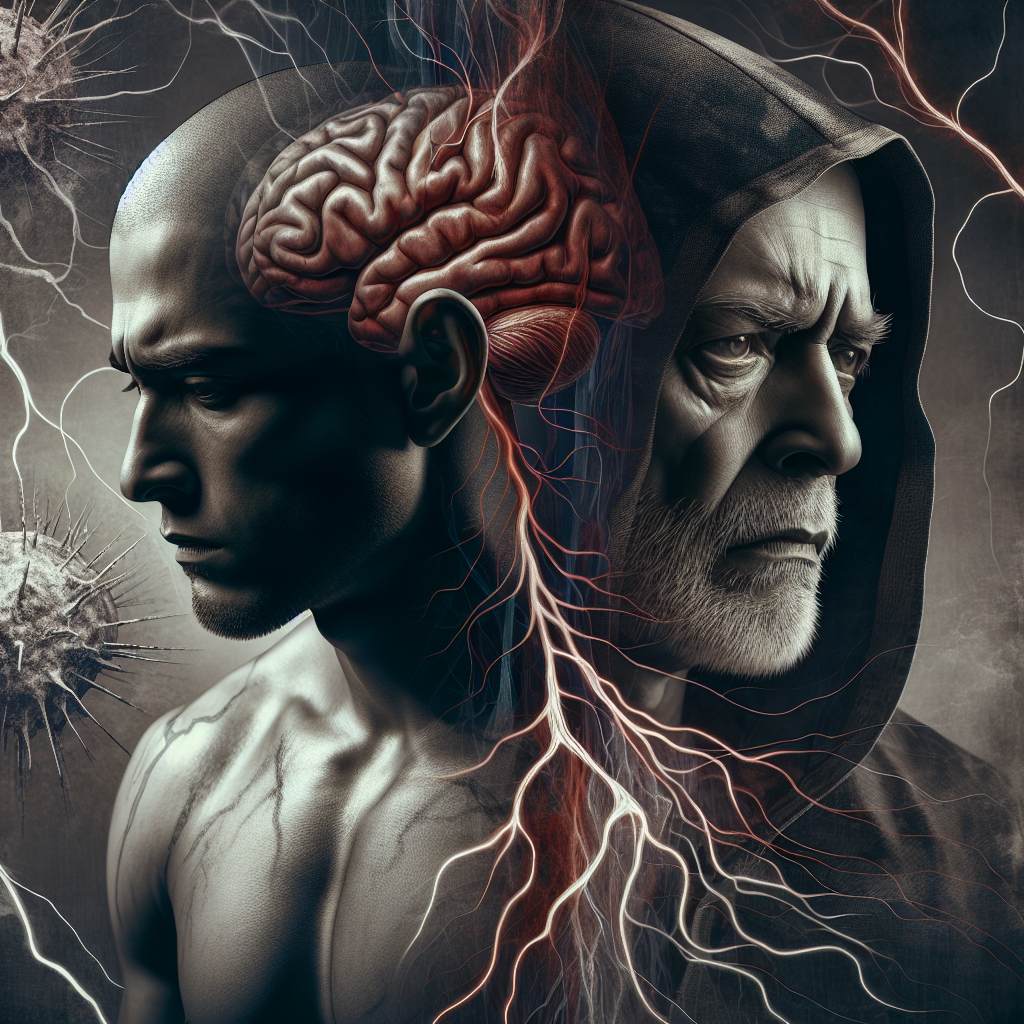Introduction
Imagine waking up one morning with the stark realization that your life has changed entirely overnight. A sudden slip, a car accident, or a stroke can lead to acquired brain injury (ABI), thrusting the sufferer into The Silent Struggle: Unpacking the Effects of Acquired Brain Injury. This struggle often remains hidden from society, a battle not only within the mind but also against the perceptions of the outside world.
This article delves deeply into the complexities of ABI, revealing its profound impacts on individuals and families. Through storytelling, research, and case studies, we will explore the invisible hurdles of ABI, offering insights that are both enlightening and supportive.
Understanding Acquired Brain Injury
What is Acquired Brain Injury?
Acquired brain injury is defined as any damage to the brain that occurs after birth, unlike congenital conditions. This category includes traumatic brain injuries (TBIs), strokes, infections, and degenerative diseases. ABI can result in a broad range of cognitive, physical, and emotional symptoms, leading to significant life changes.
Table 1: Common Causes of Acquired Brain Injury
| Cause | Description |
|---|---|
| Traumatic Brain Injury (TBI) | Resulting from external force, e.g., accidents or falls. |
| Stroke | A loss of blood supply to the brain causing cell death. |
| Brain Infection | Such as encephalitis or meningitis. |
| Tumors | Growth impacting brain function. |
The Silent Struggle: Unpacking the Effects of Acquired Brain Injury
Cognitive Challenges
Cognitive effects of ABI can be debilitating and often go unnoticed. Individuals might experience memory loss, difficulty concentrating, or challenges in decision-making. These cognitive deficits can impact daily functioning and relationships.
Case Study: Sarah’s Story
Sarah, a vibrant 30-year-old teacher, suffered a TBI from a bicycling accident. Post-recovery, she found herself struggling to remember lesson plans, leading to a drop in her confidence and job performance. This situation illustrates how cognitive impairments from ABI can wreak havoc not just on personal identity but also on professional ambitions.
Emotional and Psychological Impacts
The emotional ramifications of ABI can be profound. Individuals may struggle with depression, anxiety, and mood swings, often feeling isolated due to their altered mental state.
Table 2: Emotional Symptoms of Acquired Brain Injury
| Emotional Symptom | Description |
|---|---|
| Depression | Persistent sadness and loss of interest. |
| Anxiety | Chronic worry and restlessness. |
| Mood Swings | Sudden and extreme emotional fluctuations. |
Case Study: John’s Journey
John, a former athlete, experienced a stroke at 25. Following his recovery, he faced severe anxiety and depression, feeling stripped of his former self. His struggle exemplifies how emotional healing is crucial in the rehabilitation journey.
Physical Limitations
ABI can also lead to various physical challenges, from fatigue to motor skill difficulties. These issues can hinder mobility and daily activities, often requiring adaptations in lifestyle.
Case Study: Linda’s Transition
Linda, a mother of two, suffered an ABI from a car accident. She faced extreme fatigue and motor skill impairment that made daily tasks difficult. Her journey reflects the resilience required to adapt to new physical limitations while maintaining family dynamics.
The Road to Recovery: Therapy and Support
Rehabilitation Strategies
Recovery from ABI often involves a multi-disciplinary approach, including physical therapy, occupational therapy, and cognitive rehabilitation. Each aspect plays a critical role in helping individuals reclaim their independence and quality of life.
Support Systems
Family support is essential in navigating the road to recovery. Involving loved ones can create a nurturing environment, allowing for emotional healing and encouragement. Case studies show that family participation can significantly impact an individual’s motivation and recovery outcomes.
Table 3: Types of Support for ABI Patients
| Type of Support | Description |
|---|---|
| Family Counseling | Helps families cope with emotional challenges. |
| Support Groups | Provides community and shared experiences. |
| Professional Counseling | Offers individual therapy tailored for ABI. |
Living with Acquired Brain Injury
Long-term Adaptations
Living with ABI entails continuous adaptations. This might mean modifying work environments or reinstating routines to accommodate new challenges. Awareness and education about ABI are crucial in reducing stigma and fostering understanding in society.
Real-world Implications
Many individuals with ABI can lead fulfilling lives with the proper support. Advocacy and awareness campaigns play a crucial role in shifting societal perceptions and encouraging inclusive practices.
Conclusion
The narrative around The Silent Struggle: Unpacking the Effects of Acquired Brain Injury encapsulates a journey of resilience, adaptation, and hope. Understanding the complexities of ABI is essential for promoting awareness and providing the necessary support to those affected.
As we move forward, let us engage in conversations that not only highlight the challenges but celebrate the triumphs of individuals living with ABI. The journey might be silent, but it is paved by courage, determination, and the unyielding human spirit.
FAQs
1. What is the difference between TBI and ABI?
Answer: Traumatic Brain Injury (TBI) is a subtype of Acquired Brain Injury (ABI) specifically caused by external forces, such as accidents. ABI encompasses a broader range of brain injuries, including strokes and infections.
2. Can ABI be cured?
Answer: While there is no definitive cure for ABI, many individuals achieve significant improvements through rehabilitation and therapy tailored to their specific needs.
3. How does ABI affect daily life?
Answer: ABI can affect cognitive abilities, emotional regulation, and physical capabilities, making daily activities challenging. Support from family and professionals can aid in managing these challenges.
4. Are there support groups for individuals with ABI?
Answer: Yes, many local and online support groups cater to individuals with ABI and their families, providing a community for shared experiences and encouragement.
5. What resources are available for ABI rehabilitation?
Answer: Rehabilitation resources typically include physical therapists, occupational therapists, neuropsychologists, and rehabilitation centers specializing in brain injuries.
In summary, by collaboratively embracing the narratives of those affected by ABI, we can foster a society that acknowledges The Silent Struggle: Unpacking the Effects of Acquired Brain Injury and empowers individuals toward healing and resilience.

